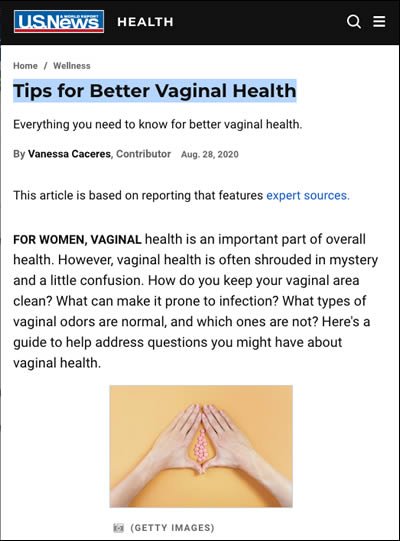Heather Jeffcoat at US News and World Report – Tips for Better Vaginal Health
US News and World Report reaches out to Heather Jeffcoat for an article entitled “Tips for Better Vaginal Health” Here is an excerpt from this thorough and very informative article by Vanessa Caceres: For women, vaginal health is an important part of overall health. However, vaginal health is often shrouded in mystery and a little […]

